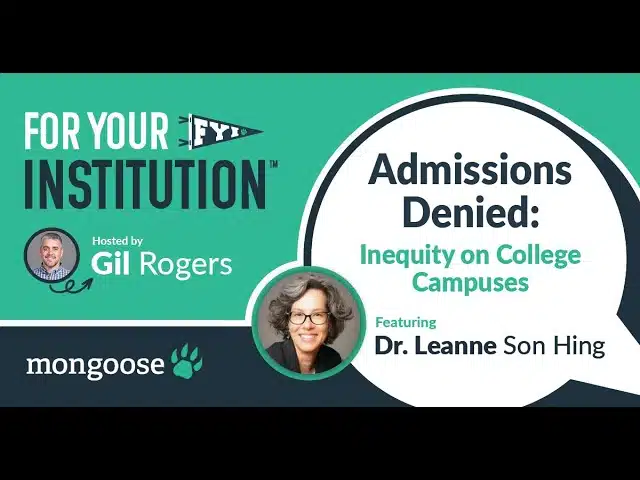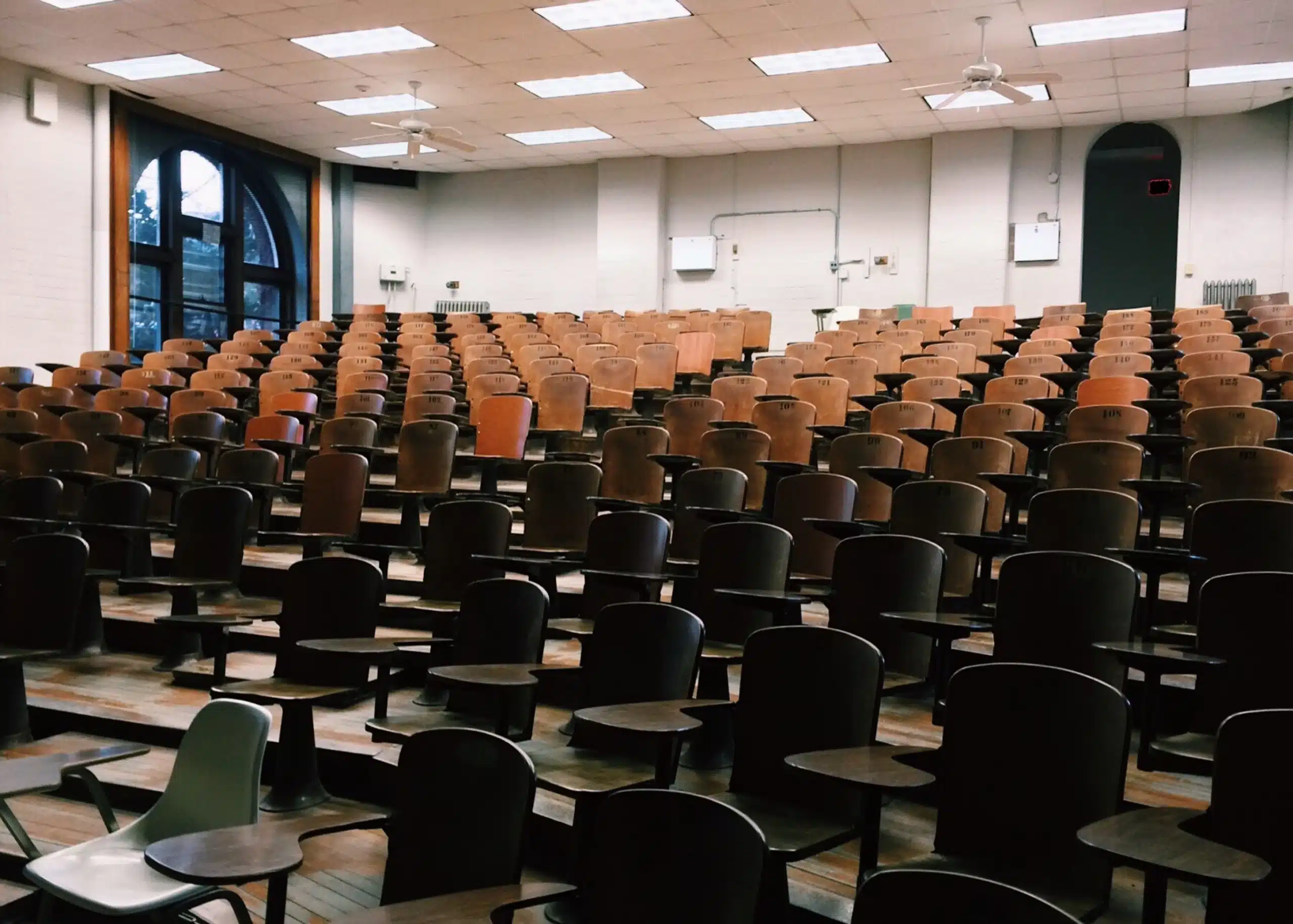Tackling Admission Inequity on College Campuses

Dr. Leanne Son Hing joins FYI to discuss biases and discrimination within institutions and their admissions processes. Leanne and Gil talk about studies that have been done to identify these biases, how institutions don’t always believe that these decisions are happening, and how they can be addressed.
🎧 Listen to the full episode below. 🎧
So, Who is Gil Rogers?
Gil Rogers is the host of the For Your Institution podcast. He brings more than two decades of higher education experience to guide our guests into sharing their expertise.
When he’s not playing FYI host or ed-tech marketing guru, you can find him on the bench coaching his son’s youth hockey and baseball teams or exploring the North Woods of Maine with his wife, kids, and dog, Buttercup.
Who is Dr. Leanne Son Hing?
Dr. Leanne Son Hing is a psychology professor at the University of Guelph in Ontario, Canada. She is a social-organizational psychologist focusing on inequalities and disparities in the workplace, meaning she helps schools and organizations run in the best way possible.
A researcher, teacher, and consultant, she also speaks publicly, delivers workshops, and serves as an expert witness to share her knowledge with others. Her research has been featured in various outlets including CBC, CNN, Boston Globe, and Vice.
In this episode of FYI
Leanne and Gil start by discussing admissions-related inequalities and biases. They also highlight how institutions can ensure they are getting as many qualified students applying to their programs to get the strongest cohort possible.
Leanne shared various studies that have been done to determine if discrimination is happening, such as changing names on resumes or emails that have similar qualifications, having different cues in resumes that discuss their favorite music or hobbies, and even Body Mass Index (BMI) being an indicator for graduate schools using in-person interviews to determine acceptance.
“One way universities can try to increase their pool is to particularly go after applications from marginalized backgrounds,” Leanne says. “Lots of universities have diversity goals already, but if you look at the composition of those universities, people from racial-ethnic minority groups are less-represented.”
Leanne adds that as admissions offices move towards a more holistic approach to admissions, There’s a halo effect on how people evaluate one component of the profile, that then has a strong influence on their evaluation on other components.
Gil and Leanne then dive into how it’s challenging to identify that these biases are happening as people who belong to systems as they perceive it as fair and just. Leanne uses an example of interviews and how individuals their own process and feel it’s valid, when it’s truly a personal preference.
So what can institutions do?
Gil asks Leanne how institutions can mitigate those biases in the admissions selection process and increase the representation of the most qualified candidates regardless of their status.
“Because of the inequalities that exist within society, somebody’s true potential might look very different from their academic record,” Leanne says. “Regardless of their background have the potential to learn and grow and develop given a proper training environment, then you can select students based on a particular proportion of people from different income deciles.”
One of Leanne’s main takeaways for institutions is to ensure their students feel like they belong.
“Create a culture within your institution where people feel supported, where people feel included, and where people can see themselves represented among those who they are looking up to,” she says.
Listen to the full episode below!
Subscribe to receive new episodes of FYI right in your inbox and share the episodes with your friends and colleagues.




